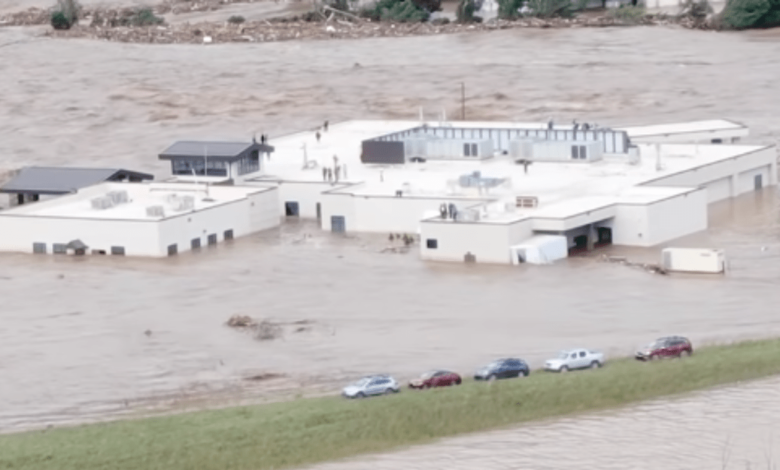Helicopters Rescue Patients and Staff from Flooded Tennessee Hospital Roof

In a crisis rescue mission on Friday, September 27th, over 50 patients and staff members were airlifted from the roof of Unicoi County Hospital in Erwin, Tennessee, after the facility became engulfed by rapidly rising floodwaters. The incident unfolded as the remnants of Hurricane Helene brought torrential rains to the region, causing the nearby Nolichucky River to overflow its banks.
The situation at Unicoi County Hospital quickly escalated as the floodwaters rendered the building inaccessible by conventional means. Ambulances were unable to reach the hospital due to the hazardous water levels, and boats proved ineffective in navigating the treacherous currents. High winds further hampered rescue efforts, preventing helicopters from operating for several hours.
Rooftop Refuge and Helicopter Airlift
By early afternoon, 54 individuals, including patients and staff, were stranded on the hospital’s roof, with seven others in rescue boats. Fortunately, the winds subsided enough for helicopters to arrive on the scene around 2:30 PM, initiating the evacuation process. Three Blackhawk helicopters, operated by the Tennessee National Guard and Virginia State Police aviation units, were deployed to airlift the stranded occupants to safety.
After a challenging operation, Ballad Health, the hospital chain that operates Unicoi County Hospital, announced that the rescue mission had been successfully completed. “All hospital personnel and patients have been rescued from Unicoi County Hospital. As of 4:40 p.m. on Friday, Sept. 27, no one remains at the facility,” the statement read.
The flooding that prompted the dramatic rescue was a result of the remnants of Hurricane Helene, which made landfall in Florida as a Category 4 storm and later caused widespread destruction and historic flooding across the southern United States. The storm’s impact on the region serves as a sobering reminder of the increasing frequency and intensity of extreme weather events fueled by climate change.







